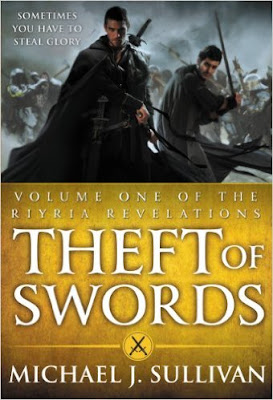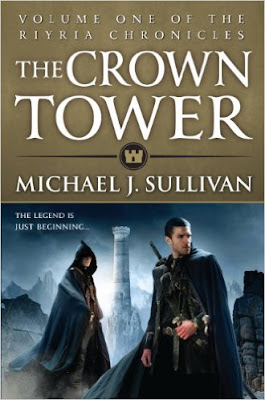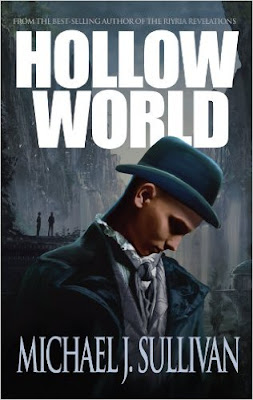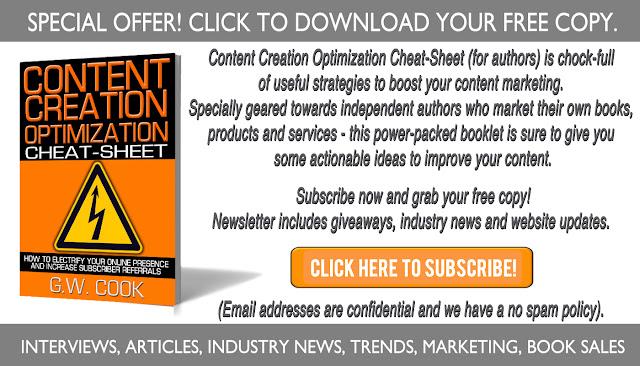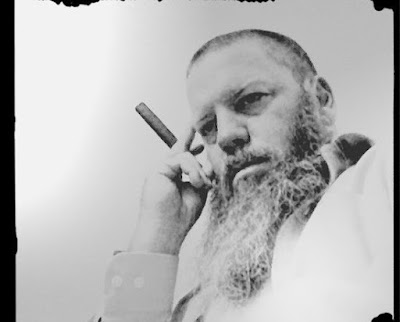Today we have something a bit different: a guest post from talented author Mark Danenhauer who talks about his self-publishing journey so far. If you would like to share a post/article about your own experiences with self-publishing, please contact the administrator via the about page. Without further ado, here's Mark's article.
About four months ago I self published my first book, Jake’s Nature Guide: Rocky Mountains. The feeling of accomplishment that came from publishing and holding the actual book in my hand was fantastic. After the launch the excitement passed and was replaced by another feeling – being lost. I just wasn’t entirely sure what to do next in terms of marketing my book.
To make sense of why I felt so lost, I want to first step back and explain what I did up to the launch of my book. Between the time I finished writing my book and the launch I researched marketing strategies for self-publishing books. One of the key books that I used was Michael Hyatt’s Platform. I also subscribed to various blogs, including Jane Friedman’s, Writer’s Digest, and My Word Publishing.
All of those different sources began pointing me in different directions and for a long time I felt completely overwhelmed because there were so many things that all authors that wish to be successful absolutely had to do. According to all of the info I was learning I needed to write a blog, create an author website, get active on social media such as Facebook and Pinterest.
Additionally, I needed to get busy on Twitter and Instagram. There were also lots of different strategies for helping to build my platform and my expertise such as writing guest posts on other blogs, writing articles on different sites such as eZine and Medium or answering questions on sites such as Quora.
For a little while I attempted to do little bit of everything, but I quickly realized that was impossible. I could not do everything. I am only one person with a finite amount of time. Eventually,
I came up with my own plan by picking and choosing those items that I enjoy doing and felt would help me meet my overall goal of selling my book. I ended up creating a blog under the same name of my book, Jake’s Nature Blog. The blog has become my primary focus area and I have been working on writing posts and growing the traffic on it for some time now. I also am somewhat active on Facebook, and Pinterest, but not Twitter or Instagram.
My thinking at the time was to focus my efforts on the blog and that would somehow lead to sales of my book. Since I was so new to this all I didn’t have a clear idea of how that would happen. I just imagined that as the traffic to my blog grew I would be able to easily convert that to book sales.
I worked on the blog a little bit every day, slowly learning the nuts of bolts of blogging, improving my SEO rankings and generating a bit more traffic. The blog was an incredible learning curve, both learning how to write content and the behind the scenes aspects such as self-hosting, and all of the different plug ins that are available. When I look back on those early posts I realize how little I knew at the time. Even though those early posts weren’t perfect, they still were a necessary part of my learning process.
Then came the much-anticipated launch of my book. In addition to promoting the launch via social media and my blog, I held a book signing in three different independent bookstores around the Rockies (Tattered Cover, The Kings English, and The Country Bookshelf). Those events were successful and I sold a bunch of books.
After I returned home and the post-launch hype from the book release began to fade, I realized that I just didn’t have a good plan to move forward. My initial plan that the blog would encourage massive sales of my book just wasn’t happening. I didn’t have a bestseller and I needed to figure out how to keep marketing my book and my writing.
During that period I joined several different self-publishing writers groups on Goodreads, and Facebook, listened to podcasts, and read more blogs and books about self-publishing (such as William Cook’s Secrets of Best Selling Self Published Authors).
That next two to three month period became a valuable time for me as I learned a lot and came to the realization that I am not just trying to sell my book. I reframed my mindset to think of myself as not just an author and began to think of my writing as a business with me as the business owner.
I am still coming around to this new way of viewing my work and figuring out the best strategy to move forward. This involves creating a new marketing plan, and a business plan that will focus on selling my paper back book, creating and selling eBooks, writing another non fiction book, and monetizing my blog and generating more traffic to it.
Some days I feel completely overwhelmed and lost because there is just so much information out in the world related to self-publishing and marketing a book. I have unfortunately spent too many days just drifting aimlessly reading stuff on self-publishing and hearing other people’s success stories.
Every time I came across a new approach it would cause me to feel like I need to incorporate it into my own plan, but that is just not feasible. I don’t have all the time in the world to work on my business. In fact, I mainly work from the time my kids leave the house to school until they return home. That gives me about 6 hours to work on my writing business and any other meetings, errands that come up during a day, not to mention trying to get some exercise.
It has taken me several months to finally feel comfortable with the direction I am heading and I have a plan to move forward. It seems like the business around creating and selling an eBook is easier and less expensive than producing an expensive paper book that needs to be stored somewhere.
I finally have my marketing plan and overall business strategy to help me move forward and begin making money as a self published author. My new focus is still on the blog, but I am going to use it to sell my book and eBooks.
When ever I have a day that I feel unmotivated or unsure what to do next I like to listen to the Side Hustle Nation podcasts, which have lots of stories of what other people have done to make a success of their writing or other endeavors. Those stories always help to inspire me to work harder and realize that I can become a successful self-published author.
****************************
About the author – Mark Danenhauer is a blogger, father, and nature lover that recently published his first book, Jake’s Nature Guide: Rocky Mountains. He loves getting outside to explore with his family and tries to do his writing when the kids are in school or before the house wakes up. You can catch up with Mark and learn all kinds of fun nature facts on his blog – Jake’s Nature Blog or on Facebook.
My Introduction To The World Of Self-Publishing
by Mark Danenhauer
About four months ago I self published my first book, Jake’s Nature Guide: Rocky Mountains. The feeling of accomplishment that came from publishing and holding the actual book in my hand was fantastic. After the launch the excitement passed and was replaced by another feeling – being lost. I just wasn’t entirely sure what to do next in terms of marketing my book.
To make sense of why I felt so lost, I want to first step back and explain what I did up to the launch of my book. Between the time I finished writing my book and the launch I researched marketing strategies for self-publishing books. One of the key books that I used was Michael Hyatt’s Platform. I also subscribed to various blogs, including Jane Friedman’s, Writer’s Digest, and My Word Publishing.
All of those different sources began pointing me in different directions and for a long time I felt completely overwhelmed because there were so many things that all authors that wish to be successful absolutely had to do. According to all of the info I was learning I needed to write a blog, create an author website, get active on social media such as Facebook and Pinterest.
Additionally, I needed to get busy on Twitter and Instagram. There were also lots of different strategies for helping to build my platform and my expertise such as writing guest posts on other blogs, writing articles on different sites such as eZine and Medium or answering questions on sites such as Quora.
For a little while I attempted to do little bit of everything, but I quickly realized that was impossible. I could not do everything. I am only one person with a finite amount of time. Eventually,
I came up with my own plan by picking and choosing those items that I enjoy doing and felt would help me meet my overall goal of selling my book. I ended up creating a blog under the same name of my book, Jake’s Nature Blog. The blog has become my primary focus area and I have been working on writing posts and growing the traffic on it for some time now. I also am somewhat active on Facebook, and Pinterest, but not Twitter or Instagram.
My thinking at the time was to focus my efforts on the blog and that would somehow lead to sales of my book. Since I was so new to this all I didn’t have a clear idea of how that would happen. I just imagined that as the traffic to my blog grew I would be able to easily convert that to book sales.
I worked on the blog a little bit every day, slowly learning the nuts of bolts of blogging, improving my SEO rankings and generating a bit more traffic. The blog was an incredible learning curve, both learning how to write content and the behind the scenes aspects such as self-hosting, and all of the different plug ins that are available. When I look back on those early posts I realize how little I knew at the time. Even though those early posts weren’t perfect, they still were a necessary part of my learning process.
Then came the much-anticipated launch of my book. In addition to promoting the launch via social media and my blog, I held a book signing in three different independent bookstores around the Rockies (Tattered Cover, The Kings English, and The Country Bookshelf). Those events were successful and I sold a bunch of books.
After I returned home and the post-launch hype from the book release began to fade, I realized that I just didn’t have a good plan to move forward. My initial plan that the blog would encourage massive sales of my book just wasn’t happening. I didn’t have a bestseller and I needed to figure out how to keep marketing my book and my writing.
During that period I joined several different self-publishing writers groups on Goodreads, and Facebook, listened to podcasts, and read more blogs and books about self-publishing (such as William Cook’s Secrets of Best Selling Self Published Authors).
That next two to three month period became a valuable time for me as I learned a lot and came to the realization that I am not just trying to sell my book. I reframed my mindset to think of myself as not just an author and began to think of my writing as a business with me as the business owner.
I am still coming around to this new way of viewing my work and figuring out the best strategy to move forward. This involves creating a new marketing plan, and a business plan that will focus on selling my paper back book, creating and selling eBooks, writing another non fiction book, and monetizing my blog and generating more traffic to it.
Some days I feel completely overwhelmed and lost because there is just so much information out in the world related to self-publishing and marketing a book. I have unfortunately spent too many days just drifting aimlessly reading stuff on self-publishing and hearing other people’s success stories.
Every time I came across a new approach it would cause me to feel like I need to incorporate it into my own plan, but that is just not feasible. I don’t have all the time in the world to work on my business. In fact, I mainly work from the time my kids leave the house to school until they return home. That gives me about 6 hours to work on my writing business and any other meetings, errands that come up during a day, not to mention trying to get some exercise.
It has taken me several months to finally feel comfortable with the direction I am heading and I have a plan to move forward. It seems like the business around creating and selling an eBook is easier and less expensive than producing an expensive paper book that needs to be stored somewhere.
I finally have my marketing plan and overall business strategy to help me move forward and begin making money as a self published author. My new focus is still on the blog, but I am going to use it to sell my book and eBooks.
When ever I have a day that I feel unmotivated or unsure what to do next I like to listen to the Side Hustle Nation podcasts, which have lots of stories of what other people have done to make a success of their writing or other endeavors. Those stories always help to inspire me to work harder and realize that I can become a successful self-published author.
****************************
About the author – Mark Danenhauer is a blogger, father, and nature lover that recently published his first book, Jake’s Nature Guide: Rocky Mountains. He loves getting outside to explore with his family and tries to do his writing when the kids are in school or before the house wakes up. You can catch up with Mark and learn all kinds of fun nature facts on his blog – Jake’s Nature Blog or on Facebook.




